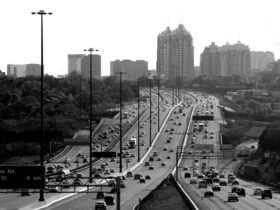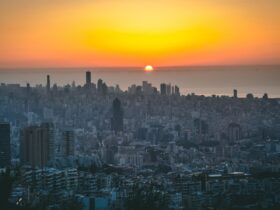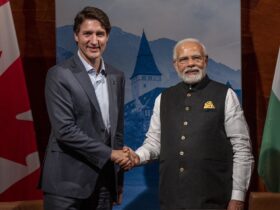Diplomatic tensions between India and Canada reached new heights on Monday as India decided to withdraw its High Commissioner and other targeted diplomats from Canada. This move came shortly after India’s Ministry of External Affairs (MEA) summoned Canada’s charge d’affaires, Stewart Wheeler, in response to Canadian Prime Minister Justin Trudeau’s serious allegations against New Delhi.
The MEA issued a statement condemning Canada’s actions, calling the targeting of the Indian High Commissioner and other diplomats in Canada “completely unacceptable.” The ministry expressed concerns over the safety of Indian diplomats, citing an atmosphere of extremism and violence. “We have no faith in the current Canadian Government’s commitment to ensure their security. Therefore, the Government of India has decided to withdraw the High Commissioner and other targeted diplomats and officials,” the statement read. The ministry also conveyed that India reserves the right to take further steps in response to what it views as the Trudeau government’s support for extremism, violence, and separatism against India.
Speaking to reporters after the meeting, Stewart Wheeler reiterated Canada’s stance, stating that Canada had provided “credible, irrefutable evidence” of ties between Indian agents and the murder of a Canadian citizen on Canadian soil. Wheeler emphasized the importance of cooperation between the two nations in getting to the bottom of these allegations.
India’s withdrawal of its diplomats followed its condemnation of Canada’s investigation into the Indian High Commissioner and other diplomats as “persons of interest” in connection with the assassination of Hardeep Singh Nijjar, a prominent Khalistani separatist. The MEA strongly rejected Trudeau’s allegations, calling them “baseless” and politically motivated, accusing the Canadian Prime Minister of using anti-India rhetoric for domestic political gains.
“The government of India strongly rejects these preposterous imputations and ascribes them to the political agenda of the Trudeau government that is centred around vote bank politics,” the MEA said. It further pointed to Prime Minister Trudeau’s history of perceived hostility towards India, including his 2018 visit to India, which was seen as an attempt to curry favor with pro-Khalistan elements. The ministry also highlighted Trudeau’s past associations with separatist elements, including his cabinet’s inclusion of individuals who have openly supported an extremist agenda regarding India.
The escalating diplomatic crisis between the two nations reflects the deepening mistrust and continued friction following Trudeau’s allegations in 2023 linking Indian agents to the killing of Nijjar. Both sides remain firm in their positions, leaving little room for diplomatic resolution in the near future.












Leave a Reply